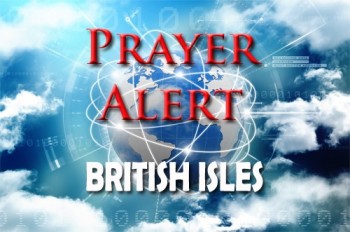Displaying items by tag: arms sales
Gaza: USA files charges against Hamas leaders
The USA has filed criminal charges against Yahya Sinwar, the leader of Hamas, and five other individuals for orchestrating the deadly attack on 7 October which killed 1,200 people, including forty Americans. The charges include conspiracy to support a terrorist organisation, conspiracy to murder US nationals, and conspiracy to use weapons of mass destruction. The complaint alleges support from Iran and Hezbollah. Three of the defendants are believed to be dead, while Sinwar remains in hiding. These charges are part of a broader effort to dismantle Hamas’s operations, but the White House also says it is actively working with Egypt and Qatar on a new ceasefire and hostage deal. In other developments, in Israel there have been three days of huge protests against Benjamin Netanyahu, and the UK government has decided to suspend sale of certain types of arms sales to Israel because they might be used in violation of international humanitarian law.
Bishop condemns arms sales to Saudis
The Bishop of St Albans said arms sales to Saudi Arabia should be suspended, after a court of appeal ruled that the Government failed to assess adequately the risk of arms being used in violation of international law. He said, ‘We need reassurance that the Government has adopted appropriate safeguards to protect civilians in future. Aid is still needed in Yemen, and I hope international partners will work with the Government to deliver this.’ Campaign Against Arms Trade said the Government didn’t enforce its own rules, which state that military export licences should not be granted if there is a clear risk that arms might be used in violation of international humanitarian law. Christian Aid said that the Saudi-UAE-led coalition was being propped up by UK government military advisers, arms exports, and ongoing political and technical support. The Government plans to appeal against the court’s ruling.
USA: Trump criticised over Saudi arms sales
Politicians are challenging Donald Trump’s relationship with Saudi Arabia. Senator Elizabeth Warren said that the president has refused to halt weapons sales because he is more interested in appeasing US defence contractors than in holding the Saudis accountable for Jamal Khashoggi’s murder or for thousands of Yemeni civilians killed by those weapons. Senator Bernie Sanders is equally critical of Trump’s relationship with the Saudis, citing it as an example of his liking of foreign dictators. The Senate voted 63-37 to run with Sanders’ resolution to force Trump to end US support for the Saudi-led coalition in Yemen. That same day, it emerged that Riyadh had confirmed a $15 billion deal with defence contractor Lockheed Martin for a missile defence system. One observer said Trump’s determination to preserve Saudi arms sales was an example of the ‘stranglehold of defence contractors on our military policy’.
Glasgow Arms Fair
Scotland’s largest council was condemned when it decided to sponsor the arms fair that ran from 26 – 28 June in Glasgow. Christians protested with members of the Sink the Arms Fair Coalition and activist groups from across Scotland from CND, Palestine solidarity activists, Kurdistan solidarity activists and Quakers for Peace. See #UDT2018 Rev Dr Richard Frazer was disappointed that Glasgow supports an international festival of the arms trade, ‘To facilitate such a gathering is deeply uncomfortable at a time when so many innocent people around the world are suffering from effects of war and the damage and destruction caused by weapons.’ Dr Frazer said that public bodies in Scotland should not support or benefit from a conference which facilitates conflict and destruction. ‘Humanitarian catastrophes are taking place all around the world and some companies here are cashing in on the plight of those fleeing suffering by equipping oppressive states to stop refugees from reaching safety.’
Extremism in UK backed by Saudi Arabia
The think-tank Henry Jackson Society has reported a 'clear and growing link' between Islamist organisations preaching violence in the UK and foreign state funding. It has called for a public inquiry into extremism bankrolled by several Gulf States. Saudi Arabia and Iran are responsible for much of the foreign funding of extremism in the UK; Saudi Arabia has spent millions on exporting its conservative Wahhabi Islam to Muslim communities since the 1960s. Funding takes the form of endowments to mosques and Islamic educational institutions which host radical preachers and distribute extremist literature. Running parallel with this is the fact that the Saudis are one of the main buyers of UK-made arms, with the UK Government approving £3.5bn-worth of arms exports licences to the Gulf state recently and British ministers cultivating trading relationships as the UK looks for post-Brexit trading partners.




